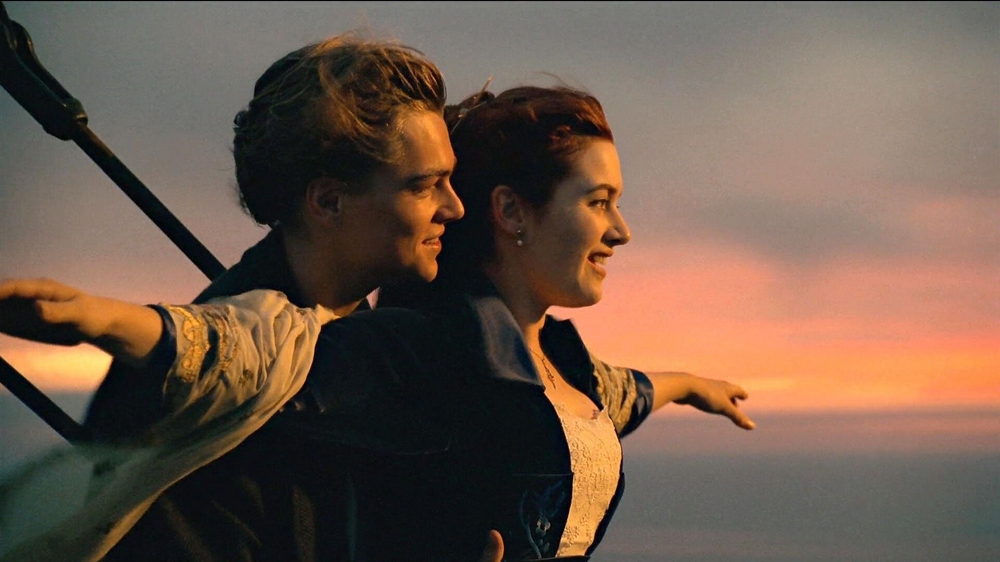Cinema dream meaning often relates to the dreamer’s perception of reality, escapism, and personal storytelling. In dreams, a cinema or movie theater can symbolize the way the dreamer views their life, as if watching a film – with all its drama, comedy, suspense, or romance. This setting can also represent a desire for a temporary escape from reality or a wish to be immersed in different experiences or emotions. The type of movie shown, the atmosphere of the cinema, and the dreamer’s interaction with the environment or the content of the film can provide insights into their subconscious thoughts about their life narrative, their role in their own story, and their desire for transformation or entertainment. Additionally, these dreams might reflect the dreamer’s feelings about social experiences, shared realities, and the collective human imagination.
- Symbolic Meanings of Cinemas in Dreams
- Cinemas as Spaces for Escapism and Fantasy
- Storytelling and Life Narratives
- Reflection on Personal Experiences and Memories
- Influence of External Media on Personal Perceptions
- Emotional and Psychological Aspects of Cinema Dreams
- Exploring Emotional Responses to Life Events
- Connection to Creativity and Imagination
- Contextual Interpretations of Cinema Dreams
- Type of Movie or Genre Being Watched
- Interactions within the Cinema Setting
- Common Cinema Dream Scenarios
- Watching a Movie in the Cinema
- Participating or Acting in a Film
- Empty or Abandoned Cinemas
- Cultural and Social Perspectives on Cinema Dreams
- Role of Cinema and Films in Cultural Narratives
- Social Commentary and Media Influences
- Conclusion
- Meaning of dreaming with Cinema
Symbolic Meanings of Cinemas in Dreams
Cinemas in dreams are rich in symbolism, often representing escapism, personal storytelling, reflections on life experiences, and the influence of external media. Each aspect of a cinema dream, from the setting to the content of the movie and the dreamer’s response, can offer insights into their subconscious mind and perspectives on life.
Cinemas as Spaces for Escapism and Fantasy
Dreaming of being in a cinema can symbolize a desire for escapism and fantasy. The first aspect to consider is the nature of the escape. A dream of watching an adventurous or fantastical movie might represent a longing to break free from mundane routines or a wish to experience more excitement and imagination in life.
The second aspect is the dreamer’s emotional response to this escapism. Feeling exhilarated and engrossed in the movie can indicate a healthy use of fantasy as a way to cope with stress or spark creativity. However, if the dreamer feels trapped or disengaged, it might suggest an overreliance on escapism or a disconnection from reality. This aspect of the dream invites the dreamer to balance their need for fantasy with their engagement in the real world.
Storytelling and Life Narratives
Cinemas in dreams can also symbolize the art of storytelling and its relation to the dreamer’s life narrative. The first aspect involves the type of movie being watched. A drama or romance might reflect the dreamer’s current life themes or emotional state, while a comedy or action film could represent a desire for light-heartedness or adventure.
The second aspect is how the dreamer relates to the story. Identifying with a character or being moved by the plot can mirror how the dreamer sees their own life, including their struggles, hopes, and dreams. This scenario can prompt the dreamer to reflect on their life story and how they perceive their journey, including the roles they play and the narratives they create.
Reflection on Personal Experiences and Memories
The cinema setting in dreams can also be a space for reflecting on personal experiences and memories. The first aspect is the content of the movie, which may echo past events or significant memories in the dreamer’s life. A nostalgic or historical film can trigger a reflection on personal history, relationships, and growth.
The second aspect is the dreamer’s emotional reaction to these reflections. Experiencing nostalgia, joy, or sadness while watching the movie can indicate an ongoing processing of past experiences, highlighting unresolved feelings or cherished memories. This scenario encourages the dreamer to explore their emotional connection to their past and how these memories influence their present life.
Influence of External Media on Personal Perceptions
Lastly, dreaming of a cinema can symbolize the influence of external media on the dreamer’s perceptions and worldview. The first aspect to consider is the impact of the film’s content. A dream featuring a thought-provoking or disturbing movie might represent the dreamer’s awareness of how media shapes their thoughts and opinions.
The second aspect is the dreamer’s critical engagement with the movie. Actively analyzing or critiquing the film in the dream can symbolize a critical approach to media consumption, while passively absorbing the content might suggest susceptibility to external influences. This aspect of the dream invites the dreamer to consider how media impacts their perspectives and the importance of discernment in interpreting and integrating external information into their worldview.
Emotional and Psychological Aspects of Cinema Dreams

Dreams involving cinemas can be a profound reflection of the dreamer’s emotional landscape and psychological state, particularly in relation to their responses to life events and their connection to creativity and imagination. These aspects of cinema dreams can offer insights into the dreamer’s emotional processing, creative expression, and imaginative capabilities.
Exploring Emotional Responses to Life Events
Cinema dreams can serve as a symbolic space for the exploration of emotional responses to various life events. The first aspect to consider is the genre or theme of the movie being watched in the dream. For example, a drama or tragedy might reflect the dreamer’s current emotional struggles or past traumas, while a comedy could represent a need for levity and healing in the face of challenges.
The second aspect is the dreamer’s reaction to the movie. Intense emotional responses, such as crying, laughter, or fear, can indicate that the dreamer is processing similar emotions in their waking life, possibly related to recent experiences or deeper, unresolved issues. This aspect of the dream invites the dreamer to acknowledge and address their emotional needs and responses, potentially uncovering hidden feelings or providing a cathartic release.
Connection to Creativity and Imagination
The setting of a cinema in a dream can also symbolize the dreamer’s connection to their creativity and imagination. The first aspect of this connection is the act of watching or engaging with the movie. This can represent the dreamer’s imaginative engagement with their own ideas and creative potential, reflecting their ability to visualize and conceptualize unique narratives or solutions.
The second aspect is the content and impact of the movie on the dreamer. A dream featuring an inspiring or visually stunning film might symbolize the dreamer’s creative inspirations and aspirations. It could also represent the dreamer’s admiration for artistic expression and their desire to incorporate more creativity into their life. Conversely, a lackluster or uninspiring movie could indicate feelings of creative block or a need for new sources of inspiration. This scenario encourages the dreamer to explore their creative desires and consider ways to foster and express their imagination in their waking life.
Contextual Interpretations of Cinema Dreams
Cinema dreams can be interpreted through various contextual elements such as the type of movie or genre being watched and the nature of interactions within the cinema setting. These elements not only reflect the dreamer’s subconscious thoughts and emotions but also provide insights into their preferences, fears, and social dynamics.
Type of Movie or Genre Being Watched
The specific type of movie or genre in a cinema dream can reveal a lot about the dreamer’s inner state and life situation. The first aspect to consider is the genre of the movie. A horror film might symbolize underlying fears or anxieties, a romance could represent desires or concerns about love and relationships, while a comedy might indicate a need for humor and lightness in the dreamer’s life.
The second aspect is the dreamer’s reaction to the movie. Enjoying a thrilling action movie might suggest a desire for more excitement or adventure, while feeling scared or unsettled by a horror movie could indicate unresolved fears or anxieties. A positive reaction to a specific genre can reflect a current state of contentment or aspiration in that area of life, whereas a negative reaction might point to discomfort or issues that need to be addressed. This scenario can encourage the dreamer to explore their emotional responses to different life situations mirrored by the movie genres.
Interactions within the Cinema Setting
Interactions within the cinema setting in a dream can provide insights into the dreamer’s social life and interpersonal relationships. The first aspect to consider is the nature of the interactions. Are they positive and engaging, or are they awkward and uncomfortable? Friendly interactions might symbolize a harmonious social life and good relationships, while conflicts or misunderstandings could represent social anxieties or relationship issues.
The second aspect involves the context of these interactions. For example, discussing the movie with others in the dream can symbolize a desire for shared experiences or intellectual exchange, while an argument in the cinema could reflect real-life conflicts or a feeling of being misunderstood by others. This aspect of the dream can prompt the dreamer to reflect on their social interactions, communication styles, and the nature of their relationships, both in personal and wider social contexts.
Common Cinema Dream Scenarios

Cinema dreams can manifest in various scenarios, each carrying its unique symbolism and implications. From watching a movie to participating in it, or encountering an empty cinema, these scenarios can provide deep insights into the dreamer’s psyche, reflecting their emotional state, aspirations, fears, and sense of belonging.
Watching a Movie in the Cinema
Dreaming about watching a movie in a cinema often symbolizes the dreamer’s perspective on their own life story. The first aspect to consider is the content and emotional impact of the movie. A thrilling or enjoyable movie might represent satisfaction with the current life phase, while a scary or unsettling film could indicate underlying fears or anxieties.
The second aspect is the dreamer’s response to the movie. Being engrossed in the film can suggest a deep engagement with one’s own life experiences, while feeling detached or bored might represent a disconnection from one’s emotions or a desire for more excitement and purpose. This scenario encourages the dreamer to reflect on their emotional engagement with life and their current life narrative.
Participating or Acting in a Film
Dreams where the dreamer is participating or acting in a film can symbolize their role in their own life and how they perceive their actions and decisions. The first aspect of this scenario is the role played by the dreamer in the movie. Leading roles might represent a sense of control and prominence in one’s life, while a supporting or background role could indicate feelings of insignificance or a lack of agency.
The second aspect is the nature of the film and the dreamer’s performance. A successful and confident performance can suggest self-assurance and effectiveness in real-life roles, whereas struggling or forgetting lines might represent insecurities or doubts about one’s abilities and decisions. This scenario can prompt the dreamer to consider their self-confidence, their roles in life, and how they perceive their contributions and achievements.
Empty or Abandoned Cinemas
An empty or abandoned cinema in a dream can symbolize feelings of isolation, loneliness, or neglect. The first aspect to consider is the atmosphere and condition of the cinema. An eerie or dilapidated cinema might represent neglected aspects of the dreamer’s life or feelings of being left behind or forgotten.
The second aspect is the dreamer’s emotional response to the empty cinema. Feelings of sadness or unease might reflect fears of social isolation or a sense of disconnection from others. Alternatively, finding peace or solace in the solitude can suggest a need for introspection or a comfort with one’s own company. This scenario encourages the dreamer to explore their feelings about social interaction, belonging, and their relationship with solitude and reflection.
Cultural and Social Perspectives on Cinema Dreams
Cinema dreams can reflect the dreamer’s views and interactions with the broader cultural narratives and social commentary that films often provide. These dreams can offer insights into how the dreamer perceives and processes the cultural and social information presented through cinema and media.
Role of Cinema and Films in Cultural Narratives
Cinemas and films in dreams often symbolize the influence of cultural narratives and collective stories on the dreamer’s psyche. The first aspect of this symbolism is how films reflect cultural themes, values, and norms. A dream featuring a film that portrays specific cultural narratives might represent the dreamer’s engagement with or response to these shared cultural stories and values, and how they relate to their own life experiences.
The second aspect is the dreamer’s emotional and cognitive response to these cultural narratives. Feeling connected or inspired by the movie in the dream can indicate a positive alignment with cultural values or an appreciation of one’s cultural heritage. Conversely, feeling dissonance or discomfort with the film’s portrayal of cultural themes might suggest a conflict or questioning of cultural norms and values. This scenario encourages the dreamer to reflect on their relationship with their cultural context and how it shapes their identity and worldview.
Social Commentary and Media Influences
Dreams set in cinemas can also symbolize the impact of social commentary and media influences on the dreamer’s thoughts and perspectives. The first aspect to consider is the theme of the movie in the dream and its social implications. Films that tackle social issues or current events might reflect the dreamer’s awareness of and engagement with societal challenges, or their views on social justice and change.
The second aspect involves the dreamer’s reaction to the movie’s social commentary. Agreeing with or being inspired by the film’s message can suggest an active concern and alignment with societal issues. In contrast, feeling overwhelmed or challenged by the film might indicate inner conflicts regarding social issues or a sense of being influenced or swayed by media narratives. This aspect of the dream invites the dreamer to explore their stance on social matters, the influence of media on their opinions, and their engagement with societal discussions and actions.
Conclusion
In summarizing the exploration of cinema dreams, we see a multifaceted tapestry of personal, cultural, and social symbolism. These dreams can serve as a reflective lens, offering insights into the dreamer’s subconscious mind, emotional state, and their interaction with the wider cultural and social milieu. Cinema dreams often symbolize escapism, personal storytelling, the processing of emotional experiences, and the dreamer’s engagement with creativity and imagination.
Moreover, these dreams can highlight the dreamer’s relationship with cultural narratives and societal issues as portrayed in films. Whether it’s through identifying with cinematic stories, reacting to social commentary, or feeling the impact of media influences, cinema dreams reveal how external narratives intertwine with personal perceptions and emotions.
Cinema dreams encourage introspection and self-awareness, prompting the dreamer to consider their emotional responses to life events, their creative aspirations, and how they navigate the complex interplay of personal identity within a broader cultural and social context. They underscore the power of storytelling, both personal and collective, and its influence on shaping individual perspectives and experiences.
Ultimately, these dreams reflect the rich and dynamic interaction between the individual psyche and the collective narrative, offering a unique perspective on the dreamer’s life and their place within the tapestry of human experience.






